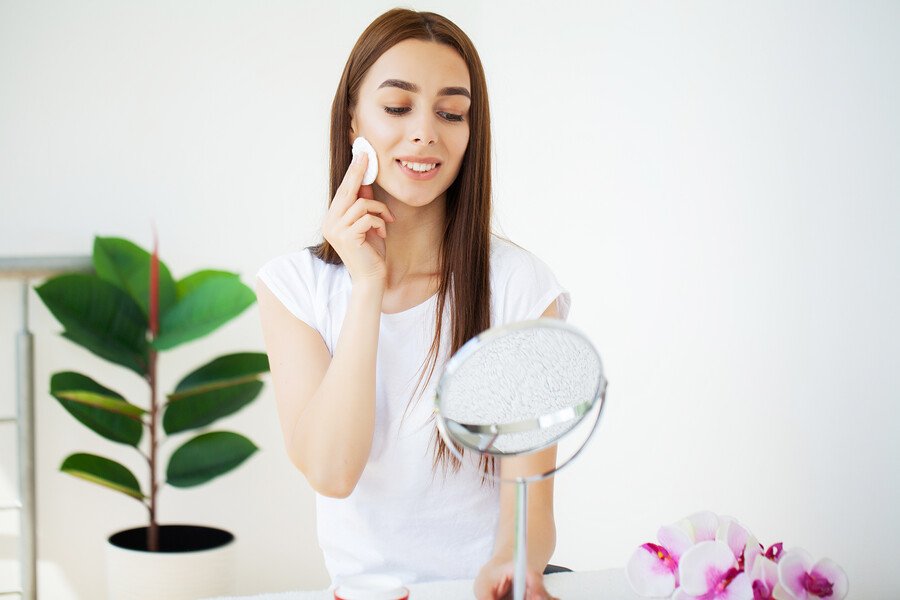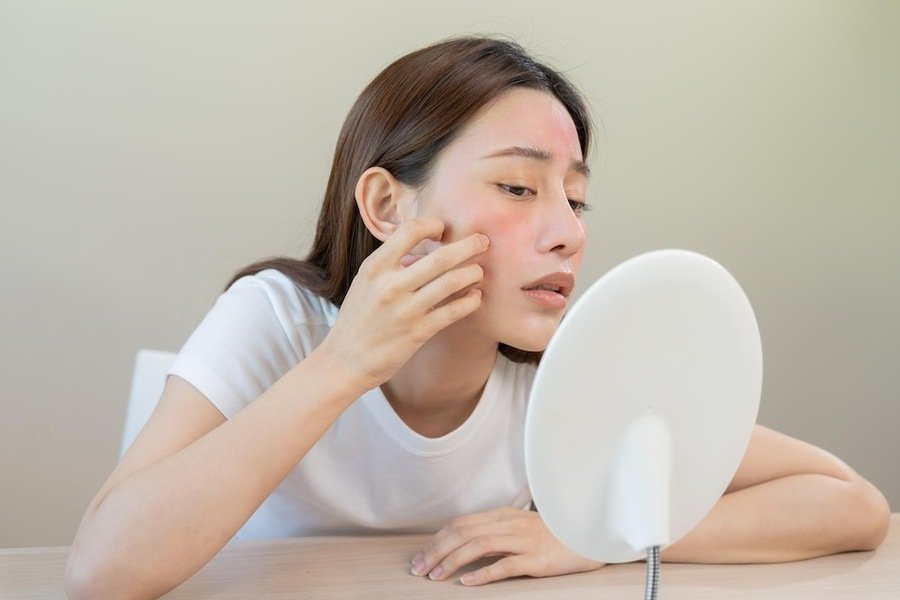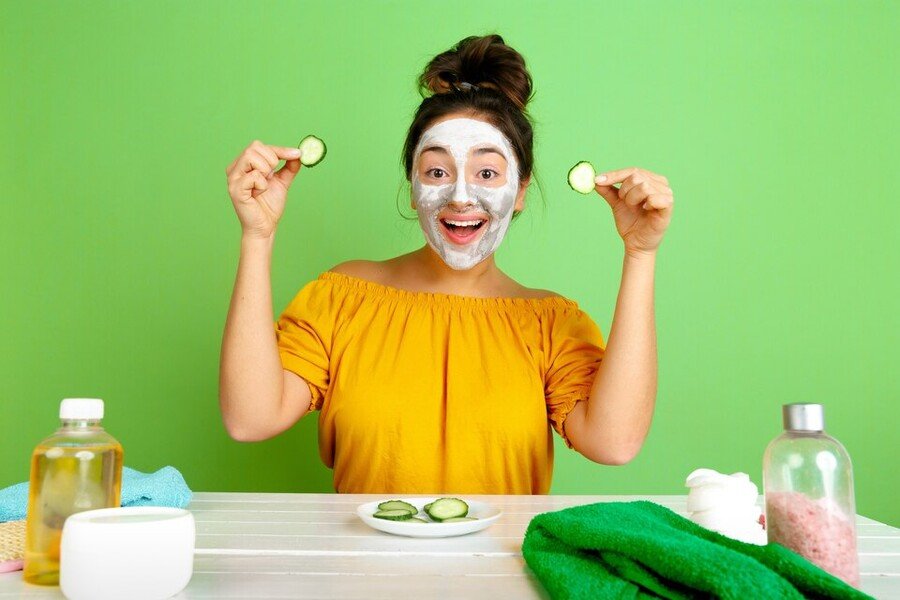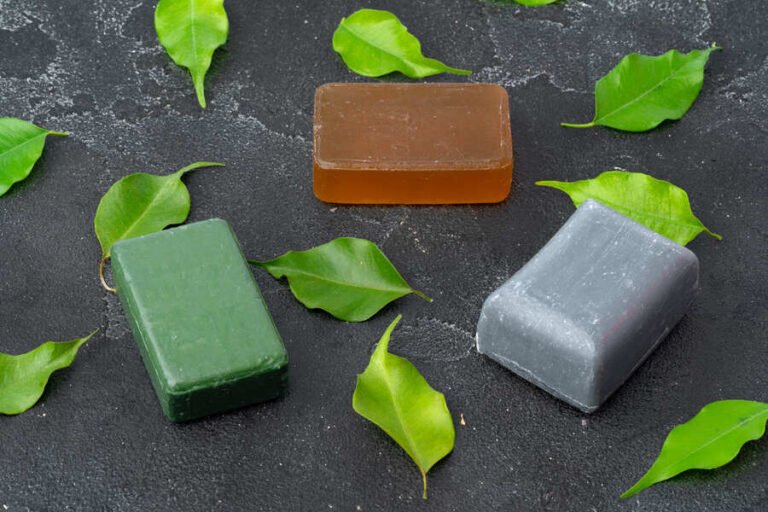Have you ever considered using curd to improve your complexion? Curd is a miracle worker when it comes to skin care. It is packed with vitamins and minerals that help nourish the skin and keep it looking youthful.
Applying curd on your face has many benefits, but there are also some potential drawbacks you should consider before deciding if this is the right choice for you. In this article, we’ll take a look at the benefits and disadvantages of applying curd on face so that you can make an informed decision about whether or not this is something worth trying.
We’ll also provide tips on how to apply it correctly for maximum benefit, as well as answer some of the most common questions about this skincare treatment.
7 Benefits of Applying Curd on Face
The creamy texture of curd can give potential skin care benefit, including making natural and flawless skin. Applying curd on your face can offer a number of benefits such as:
1. Nourishes Skin: Curd is a natural moisturizer that deeply nourishes and softens the skin. It helps in keeping the skin hydrated and supple.
2. Reduces Acne: Curd contains lactic acid, which is known to reduce the bacteria that cause acne. It helps in getting rid of the excess oil and dirt that accumulates on the skin and keeps it clean and clear.
3. Fights Wrinkles: Curd is rich in Vitamin A and E, which helps in reducing wrinkles and fine lines. It also helps in tightening the skin and making it look more youthful.

4. Brightens Skin: Curd helps in brightening the skin by removing the dead skin cells. It is also known to reduce the dark spots and blemishes on the skin.
5. Reduces Dark Circles: Curd helps in reducing the dark circles that form around the eyes. It is rich in Vitamin B and helps in reducing puffiness and brightening the skin around the eyes.
6. Reduces Sunburn: Curd contains antioxidants that help in reducing the sunburn. It soothes the skin and helps in healing the damaged skin cells.
7. Fights Aging: Curd is known to be rich in anti-aging properties. It helps in reducing wrinkles and fine lines and makes the skin look more youthful.
With all these potential benefits, it’s easy to see why many people are turning towards applying curd on their face as an alternative skincare solution.
7 Disadvantages of Applying Curd on Face
Eating it off may be tastier, but slathering it on your visage isn’t the wisest choice. Applying curd on face everyday has some disadvantages that you need to be aware of.
Applying curd on your face has become increasingly popular in the beauty world, but there’s a risk of potential side effects. Studies show that about 35% of people who use curd as part of their skincare routine have reported experiencing adverse reactions, ranging from mild skin irritation to serious allergic reactions.
1. Curd Can Irritate Sensitive Skin: Curd can be irritating to those with sensitive skin, so if you’re prone to breakouts, it’s best to do a patch test before using it on your face.
2. Can Cause Acne Breakouts: Curd is high in fats and lactic acid, which can create an environment that encourages bacteria to thrive. This can lead to clogged pores and breakouts.

3. May Cause Allergic Reactions: Curd contains proteins that can cause allergic reactions in some people. If you have a known allergy to dairy, you should avoid using curd on your face.
4. Can Dry Out Skin: Curd can be very drying for the skin, which can lead to irritation and flaking. If you have dry skin, it’s best to use a moisturizer after using curd on your face.
5. Can Make Skin Greasy: Curd can make the skin greasy and can cause clogged pores. This can lead to acne breakouts and an oily complexion.
6. Can Cause Redness and Irritation: Curd can cause redness and irritation due to its acidic nature. If you experience any of these side effects, it’s best to discontinue use of curd on your face.
7. Can Interfere With Other Skincare Treatments: Curd can interfere with some skincare treatments, such as retinol and chemical exfoliants. It’s best to use curd on its own or after using these treatments.
It’s important to be aware of these potential side effects. To stay safe, start with small amounts and do a patch test on the back of your hand before applying it to your face. Be sure to also check for any known allergies or sensitivities you may have that could cause an adverse reaction.
By understanding all the potential risks involved in applying curd on your face, you can make an informed decision about whether this product is right for you and enjoy its benefits with peace of mind.
How to Apply Curd on Face for Maximum Benefit?
If you still want to give it a try, there’s a way to apply curd on your face for maximum benefit.

- First and foremost, before applying curd it’s important to know that not all skin types can use the same ingredients. Therefore, depending on your skin type, you should choose the right ingredients for maximum benefit.
- Curd is typically good for most skin types but if you have dry or sensitive skin then using other ingredients like honey or rose water may be more beneficial.
- Additionally, if you have oily skin then adding a teaspoon of beetroot juice in the curd might help reduce oiliness and provide some extra nourishment.
By following these simple tips you’ll get all the benefits from applying curd on your face without any of the drawbacks.
Also read: Best Ladies Razor for Bump Free Skin
Curd for Hair Fall: Is it true?
Yes, it is true that curd is actually a natural hair conditioner that can help with hair fall control and nourish your hair to promote hair growth. The lactic acid in curd helps to lock the natural moisture in the hair shaft, thereby keeping the scalp hydrated. This helps to prevent hair breakage, split ends and dandruff.
It is important to know your hair type and before applying the curd on the hair.
Is Curd Good for Skin?
Curd is packed with lactic acid, which helps to cleanse, exfoliate, and brighten dull skin. It also has antibacterial properties that help to reduce acne-causing bacteria.
Additionally, it helps keep oily or acne-prone skin balanced due to its natural astringent qualities. On top of all the benefits for skin health, curd can be used as a hair mask too, helping nourish hair while controlling hair fall and promoting growth. All in all, the lactic acid content in curd makes it an ideal product for both skincare and haircare routines.
Can Curd Cause Acne?
Though it can help reduce acne-causing bacteria, too much lactic acid found in curd could potentially cause more breakouts.
Applying curd to your face must be done with caution and moderation in order to prevent any adverse reactions.
When applied correctly, curd can help dry skin by providing moisture, improve skin tone, reduce hair issues like dandruff and soften the hair.
To increase the effectiveness of a curd face mask, you can add a few drops of lemon juice or cucumber juice along with two teaspoons of beetroot juice or alpha hydroxy acid for extra benefits.
However, if not used correctly or applied too frequently, it can worsen existing acne conditions and lead to long-term skin damage.
Is Curd Good for Oily Acne Prone Skin?
Now that you know curd can potentially cause acne, let’s look at whether it’s beneficial for oily, acne-prone skin. Curd is a dairy product that contains lactic acid and other compounds that can be beneficial to the skin. The acid in curd helps break down dead skin cells and excess oils on the face.
When applied topically with diluted lemon juice or citric acid, it also acts as a mild exfoliant by removing dirt and bacteria from inside the pores. Furthermore, hydroxy acids like salicylic and lactic acids present in curd help reduce inflammation caused by acne.
All these properties make curd an ideal ingredient for nonprescription acne products as well as a great natural remedy for oily skin. To reap its benefits, apply fresh curd on your face and leave it on for 15 minutes before washing off with warm water. You can even use this miracle dairy product to address hair fall issues.
Can I Apply Curd on Face Daily?
Applying curd on the face has many benefits such as brightening dull hair, and removing dirt from pores. However, there are some drawbacks to applying curd on the face daily since it’s an acidic product that can strip away natural oils and dry out skin.
If you decide to apply curd on your face daily, consider mixing it with juices like beetroot juice or honey to make it more nourishing and less irritating. Additionally, use cosmetic beauty care products alongside your curd application to ensure that your skin remains moisturized and hydrated throughout the day.
Is Curd Good for Dry Skin?
Curd can be a boon for dry skin, as it’s lactic acid content helps to retain moisture and soften the complexion – like silk on soft skin.
When applied to the face, curd provides numerous benefits that help keep skin looking healthy and youthful. Applying curd directly to the face or mixing it with other natural ingredients such as beetroot juice or honey can help keep dry skin hydrated and nourished. Furthermore, curd contains essential vitamins like Vitamin D which is beneficial for overall health as well as for the skin’s health.
Additionally, milk is also rich in proteins which provide nourishment to the skin cells, making them strong and healthy over time.
However, those with an allergy to milk shouldn’t apply curd on their face as it may cause irritation or redness of the skin due to bacteria present in milk.
Conclusion
Applying curd on your face is a great way to reap its benefits, such as brighter and healthier looking skin. However, there are also some drawbacks worth considering before taking the plunge.
The pros and cons of applying curd on your face should be weighed carefully to make sure you’re getting the most bang for your buck.
All in all, if you do your homework and know what to look out for, using curd on your face can be a real game-changer – so don’t let this opportunity pass you by.
Also read: 5 Best Glutathione Soap for Skin Whitening in India
Frequently Asked Questions
What type of curd should I use?
You may be wondering what type of curd is best for applying to your face. While there are a variety of options, plain Greek yogurt is an excellent choice as it contains lactic acid that helps to gently exfoliate and brighten skin.
Additionally, the probiotics in it can help balance out your skin’s microbiome, which can help reduce inflammation and redness. Furthermore, the natural proteins in Greek yogurt will provide long-term moisturizing benefits.
Is there a certain amount of curd I should use?
Applying curd to your face is a popular skincare routine, but it’s important to know how much to use. If you don’t understand the potency of the curd and its active ingredients, you could be putting yourself at risk.
Too little may not yield enough of the desired effects, while too much can cause skin irritation. In general, it’s best to start with a small amount and gradually increase as needed.
Always do a patch test before applying any product liberally on your face to avoid any adverse reactions.
How often should I apply curd on my face?
Using plain yogurt or curd once a week is enough for most people – any more than that could actually dry out the skin or cause irritation. If you have oily skin, however, you may want to apply it up to twice a week for better results.
It’s best to experiment with different frequencies and see what works best for you.
Is applying curd on my face better than using an over-the-counter skincare product?
Yes, applying curd on your face is a natural way to keep your skin healthy. While over-the-counter skincare products can be effective, they often contain harsh chemicals that could damage the delicate balance of your skin.
Curd is rich in lactic acid which helps gently exfoliate and moisturize without stripping away essential oils. Additionally, it contains vitamins and minerals that help nourish the skin and reduce inflammation.
Overall, using curd as part of your skincare routine provides you with a safe and natural alternative to traditional store-bought products.







